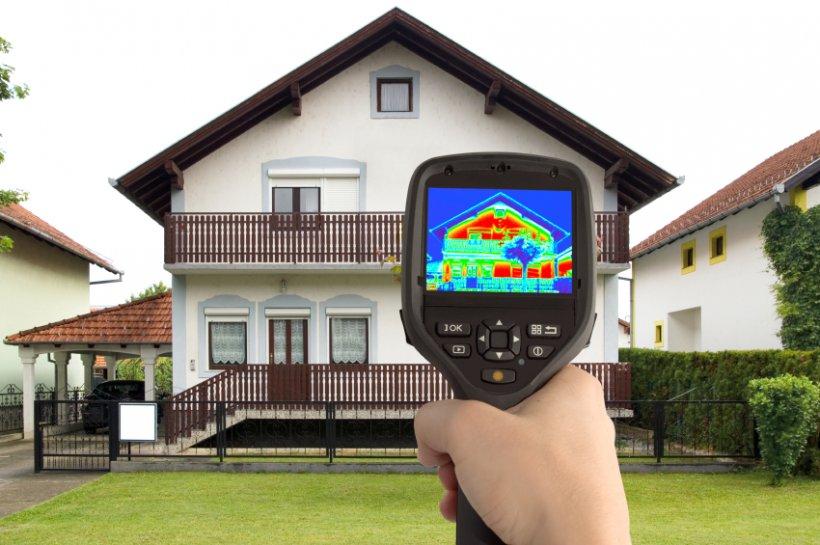Thermographic Inspections: Detect Hidden Problems Before They Become Costly Repairs

Have you ever wished you could see behind your walls?
That’s exactly what thermographic inspections allow you to do. Whether you’re a homeowner looking to improve energy efficiency or a buyer hoping to avoid hidden repairs, thermal imaging is one of the smartest tools in modern home inspection.
In this post, we’ll cover:
-
What thermographic inspections are and how they work
-
Why they’re essential in today’s home inspections
-
How they help detect issues like leaks, electrical risks, and poor insulation
-
Real-life examples and expert insights
-
Common questions answered in plain English
Let’s uncover how thermal imaging can save you money and give you peace of mind.
What Is a Thermographic Inspection?
A thermographic inspection, also called an infrared home inspection, uses a thermal imaging camera to detect temperature variations in a building. These differences in heat allow professionals to identify issues that aren’t visible to the naked eye.
What can thermographic inspections find?
-
Heat escaping through walls, windows, and doors
-
Moisture trapped behind drywall
-
Hidden plumbing leaks
-
Overloaded electrical circuits
-
HVAC system inefficiencies
By detecting these issues early, you can fix small problems before they become expensive repairs—or health hazards like mold or fire risks.
How Do Thermographic Inspections Work?
Thermal cameras detect surface temperatures and convert them into color-coded images. Warmer areas might show up as red or yellow, while cooler areas appear blue or purple.
Here’s how the process typically works:
-
Pre-inspection setup: Ideal conditions are established (often during early morning or evening when indoor/outdoor temp differences are strongest).
-
Scanning: The inspector uses an infrared camera to scan walls, ceilings, plumbing, electrical panels, and attic spaces.
-
Analysis: Hot or cold spots are evaluated to determine what they mean—are they signs of air leaks, water intrusion, or electrical overheating?
-
Reporting: A full report is delivered with images and recommendations.
This non-invasive, no-damage inspection method gives you detailed insights without tearing into walls.
Why Homeowners Should Consider a Thermographic Inspection
Thermal imaging isn’t just for high-end properties or industrial buildings. It’s becoming a standard part of responsible homeownership. Here’s why.
1. Energy Efficiency & Cost Savings
Did you know that 25–30% of your home's heating and cooling is lost through air leaks and insufficient insulation? A thermographic inspection identifies exactly where those losses are happening.
Example: A homeowner in Ohio discovered their attic insulation was missing in key areas. After correcting it, they saved $400 per year in utility bills.
Thermal imaging home inspection can reveal costly inefficiencies that aren't visible to the naked eye—making it an essential service during pre-purchase or annual home checkups.
2. Moisture Detection & Mold Prevention
Moisture trapped behind walls is often invisible—but a thermal camera can pick up the cool signature left by damp materials. That gives you a chance to act before mold spreads or structural damage occurs.
3. Fire Prevention Through Electrical Scans
Overheating breakers and faulty wiring can cause fires. Thermographic scans highlight “hot spots” in your electrical system, letting a qualified electrician fix the issue before it becomes dangerous.
4. Plumbing Leak Detection
Even a small leak under a sink or behind a shower wall can lead to thousands in repairs. Thermography spots these cold moisture zones long before water damage becomes visible.
When Should You Schedule a Thermographic Inspection?
Best times:
-
Before buying a home
-
Before or after major renovations
-
When your utility bills spike
-
After a storm or plumbing issue
-
As part of your annual home maintenance checklist
Even if you’re not seeing issues yet, an energy loss home inspection with thermal imaging can act as a powerful preventive tool.
Real-Life Example: What Thermographic Imaging Can Reveal
A homeowner noticed an odd odor but couldn’t find the source. A thermographic inspection revealed a leak behind the kitchen wall—water had been slowly pooling, and mold was starting to form.
Because it was caught early, remediation cost under $1,000 instead of over $8,000 for full mold removal and drywall replacement.
Another example: A home inspection uncovered poor insulation in the ceiling above a bedroom. After upgrading insulation, the family reduced HVAC usage and improved comfort dramatically.
Common Questions About Thermographic Inspections
Q: Are thermographic inspections worth it?
Absolutely. The average inspection costs between $300–$600 but can save you thousands in avoided repairs or wasted energy.
Q: Can I do it myself with a thermal camera?
Consumer-grade cameras exist, but interpretation is tricky. Professionals understand what to look for and how to rule out false positives (like sunlight or electronics creating heat).
Q: How long does the inspection take?
Most take 1 to 2 hours depending on home size and issues detected.
Q: Will I get a report?
Yes. Inspectors provide a full thermal image report with color photos and notes highlighting problem areas.
Q: Is it safe?
Yes. Thermographic inspections are 100% non-invasive and safe for all building materials.
Conclusion: A Smarter Way to See Your Home
You can’t fix what you can’t see—and thermographic inspections help you see everything. From hidden leaks to energy waste and fire hazards, thermal imaging is a smart, affordable way to protect your home.
Protec Inspection Services offers expert thermographic inspections designed to uncover what other inspections miss. Whether you're buying, selling, or simply maintaining your home, thermal imaging gives you the insights you need to make confident decisions.
Ready to protect your investment and save on future repairs? Contact Protec Inspection Services today to schedule your thermographic inspection.
- Art
- Causes
- Crafts
- Dance
- Drinks
- Film
- Fitness
- Food
- Oyunlar
- Gardening
- Health
- Home
- Literature
- Music
- Networking
- Other
- Party
- Religion
- Shopping
- Sports
- Theater
- Wellness


